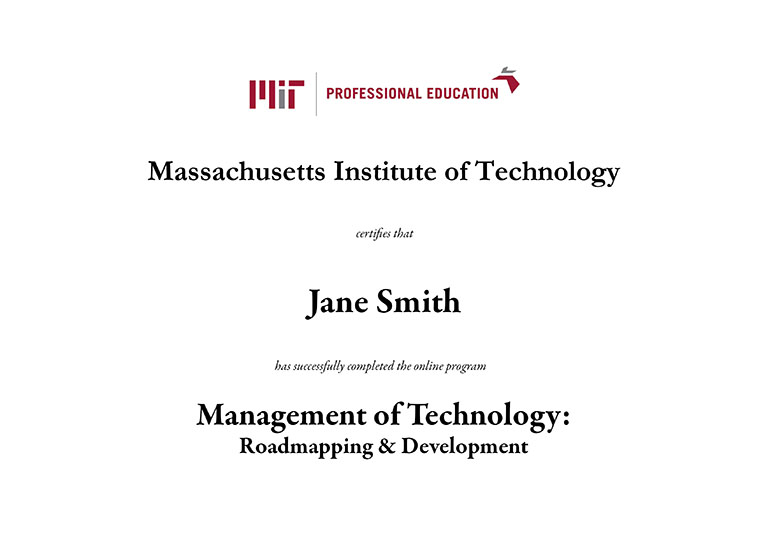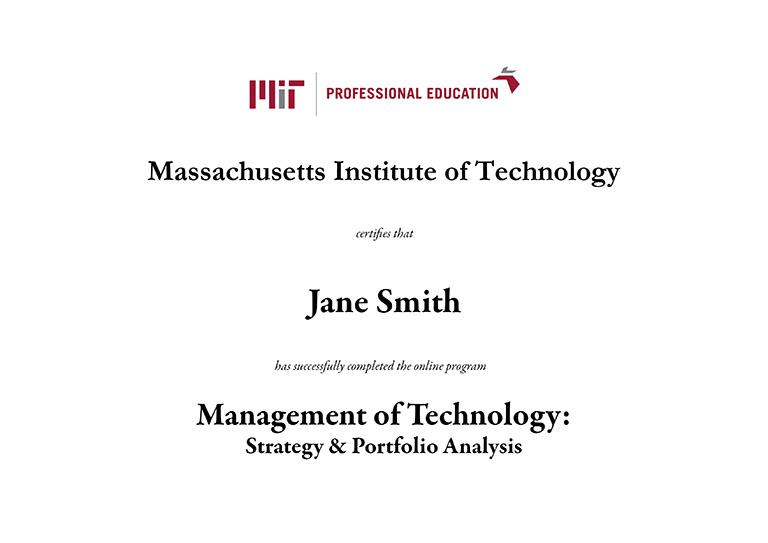Betting on the right tech
Disruptive technologies are triggering the seismic shifts currently affecting multiple industries around the globe. While organizations continuously seek to incorporate the latest developments and maximize efficiency, these momentous changes reiterate the need for decision-makers to carefully and effectively place their strategic bets.
But in order to ensure successful results, it’s imperative they place their focus on how to select, analyze, and efficiently introduce and manage the technologies best suited to improving operations. Since there is no one-size-fits-all approach, each organization should be prepared to do so according to their product, service, or goal.
A bundle program for effective tech management
MIT Professional Education’s bundle program, Management of Technology, is designed to equip professionals with the full gamut of tools, skills, and knowledge needed to successfully lead their organizations through the complexities of technology implementation.
The Learning Journey
Roadmapping & Development
Strategy & Portfolio Analysis
What is a Bundle Program?
A Bundle Program is the conjunction of two MIT Professional Education online programs. The goal of these programs is to provide an all-encompassing, more in-depth vision of a specific area of expertise, allowing professionals to partake in an 18-week learning journey to acquire new knowledge and develop new skills.
The skills you will develop
1.
Quantify technological progress over time
using relevant figures of merit (FOMs).
2.
Develop an intellectual property strategy
for their own innovative technologies.
3.
Gain a deep understanding
of the social, organizational, and fiscal influence on technological progress.
4.
Analyze and evaluate technologies
in the context of an entire system.
5.
Map one or more technologies to a target product
and/or service of their choice and set realistic FOM-based targets.
6.
Anticipate and prepare
or future technological evolution.
7.
Shape the R&D strategy and portfolio of an organization
based on a set of technology roadmaps and by creating an effective environment for R&D project execution.
In addition, you will receive two Certificates of Completion
All participants who successfully complete the bundle program will receive two MIT Professional Education Certificates of Completion: One for Management of Technology: Roadmapping & Development, and one for Management of Technology: Strategy & Portfolio Analysis.
To obtain CEUs, complete the accreditation confirmation, which is available at the end of the course. CEUs are calculated for each course based on the number of learning hours.
* The Continuing Education Unit (CEU) is defined as 10 contact hours of ongoing learning to indicate the amount of time they have devoted to a non-credit/non-degree professional development program.
To understand whether or not these CEUs may be applied toward professional certification, licensing requirements, or other required training or continuing education hours, please consult your training department or licensing authority directly.

